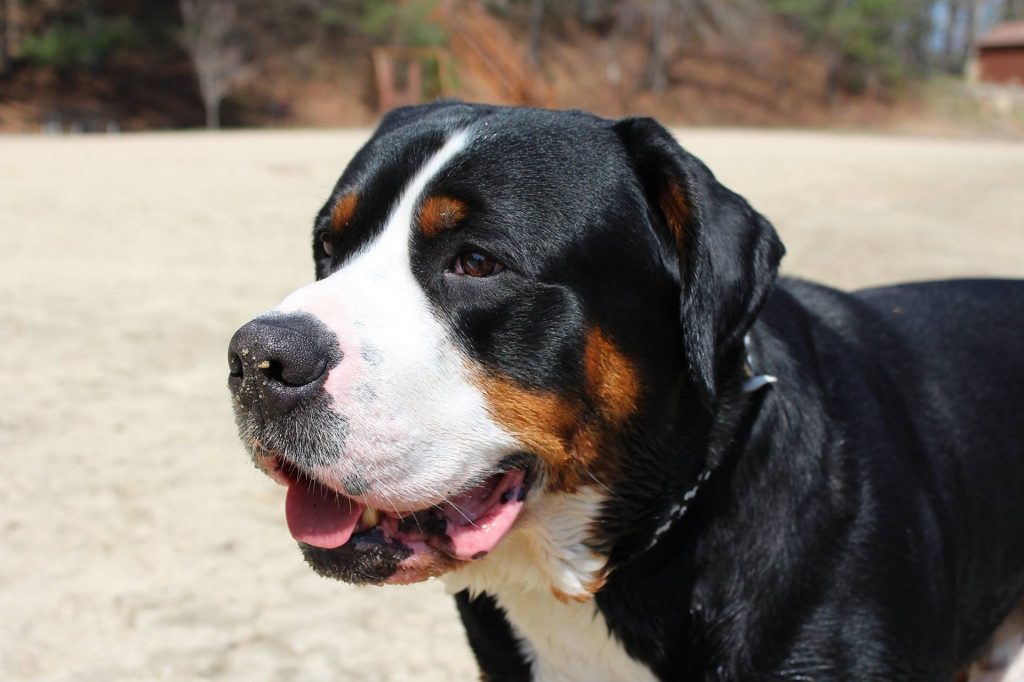Irritable Bowel Syndrome is a gastrointestinal infection that can happen to any dog if he is faced with the wrong diet, stressor or environmental factor. It’s not always known what causes IBS, and its most common symptoms are shared with many other disorders, so if you think your dog may have IBS, it’s important to have a veterinarian asses him right away in order to effectively treat the problem.
It’s always recommended that you pay close attention to your pet’s behaviors and habits, but for IBS, the most common symptoms are vomiting and diarrhea. Therefore, it’s typically not an affliction your pup will be able to hide too well.
Symptoms of Irritable Bowel Syndrome in Dogs

IBS manifests itself in the intestines and lower digestive tract. As with human IBS, the symptoms are very uncomfortable. Your dog is experiencing uncontrollable spastic convulsions in his intestines, and not only is it painful, but it can be very stressful. These are the most common observable symptoms to look out for.
- Chronic Diarrhea, occurring occasionally
- Loud stomach rumbles
- Vomiting
- Passing of trace amounts of feces and mucus
- Constipation
- Bloating
- Pain in the upper and lower abdominal region (it may be possible to observe pain when touching his abdomen)
- Loss of appetite
- Straining during elimination
- Excessive flatulence
- Lethargy and depression
Causes of IBS in Dogs
The causes of IBS are not entirely understood, but overall, it is characterized by inflammation of the intestinal wall, which is brought on by wide array of factors. The most common cause is stress and anxiety in dogs. Unfortunately, dogs don’t speak the same language as humans, so oftentimes it can be tough to determine what’s stressing them out. Other times, it may be more obvious — a recent move, new pet in the house, change in diet, outdoor/environmental hazard, new baby, change in domestic arrangement, etc. ]
Your vet can help remedy the medical symptoms, but the overarching stress factor needs to be corrected in order to prevent recurrence of IBS. Many cases have even been brought on by ingesting something inedible, so be sure to work with your doctor to hone in on what the original cause(s) may be.
Here are some of the most common causes of IBS in dogs:
- Stress
- Dietary allergies
- Fiber deficiency
- Consuming environmental substances such as harmful chemicals
- Overuse of antibiotics
- Human food
Diagnosing Irritable Bowel Syndrome in Dogs
It’s not fully understood what causes IBS, so it can be a little tricky to diagnose. Plus, it can often presents similarly to other conditions, such as worm infections, colitis, different intestinal bacterial infections, and inflammatory bowel disease. It’s crucial to provide your vet with a full background of your dog’s medical history, habits, and environmental interactions — this is the only way to ensure a definitive diagnosis.
Treating IBS in Dogs

Fortunately, IBS is treatable and the recovery process is very stable if tackled promptly. It can be a lengthy process in some cases, but most of the treatments your vet will prescribe can be carried out at home. During recovery, it’s important to schedule periodic follow-ups visits, so the doctor can assess your pup’s progress. That way you can ensure the correct underlying cause is being addressed.
The downside of IBS is that once your dog has suffered his first bout, he is prone to future recurrences throughout his lifespan. After successfully restoring your dog’s health, it’s recommended you take measures that will prevent IBS from happening again. Try to minimize stress factors, keep a close eye on his stool, look out for abnormal behavior, and beware of symptoms that occurred the last time around.
Dietary Changes for Dogs with IBS
Dietary changes are quite often a prescribed method of recovery and prevention. A fibre-rich meal plan, designed by your vet, will provide the nutrition your dog needs to regulate his digestive functions. The ideal diet should lean towards earthy and bland. Here’s some foods recommended by vets to help restore a healthy digestive tract:
- White Meat
- Flaxseed Oil
- Fish
- Green leaf vegetables – broccoli, spinach, etc. (avoid acidic vegetables)
- Egg whites
- Potatoes
Note: Avoid red meats, dark meats, dairy products, egg yolks, corn, fried food, breads, foods that are heavy in fats, meat byproducts, wheat, and preservatives.
Cost of Caring for a Dog With IBS
It’s not going to be cheap. Unfortunately, irritable bowel syndrome can take a while to remedy. During this time the bills can add up — specialized diet, vet appointments, medicine, etc. Depending on the severity, the average cost can range between $500-$3000.




